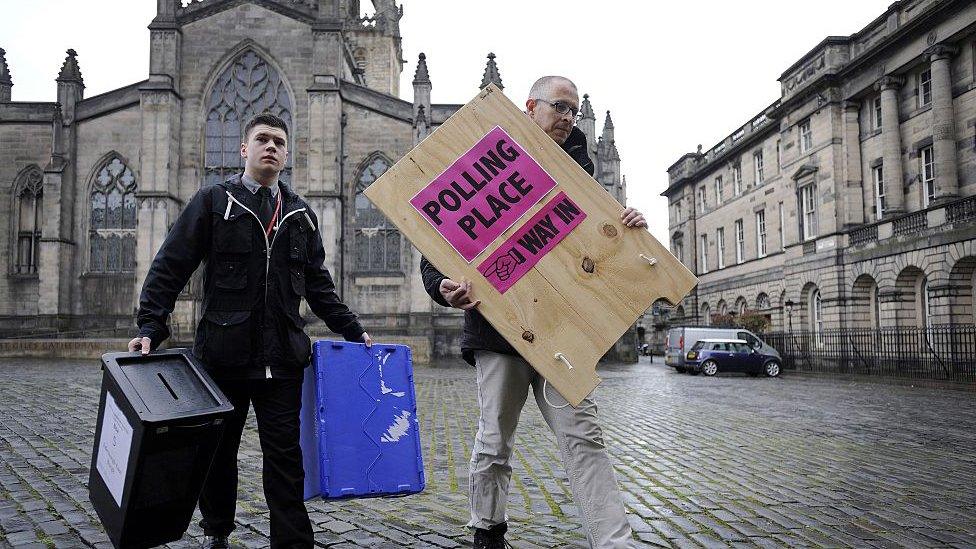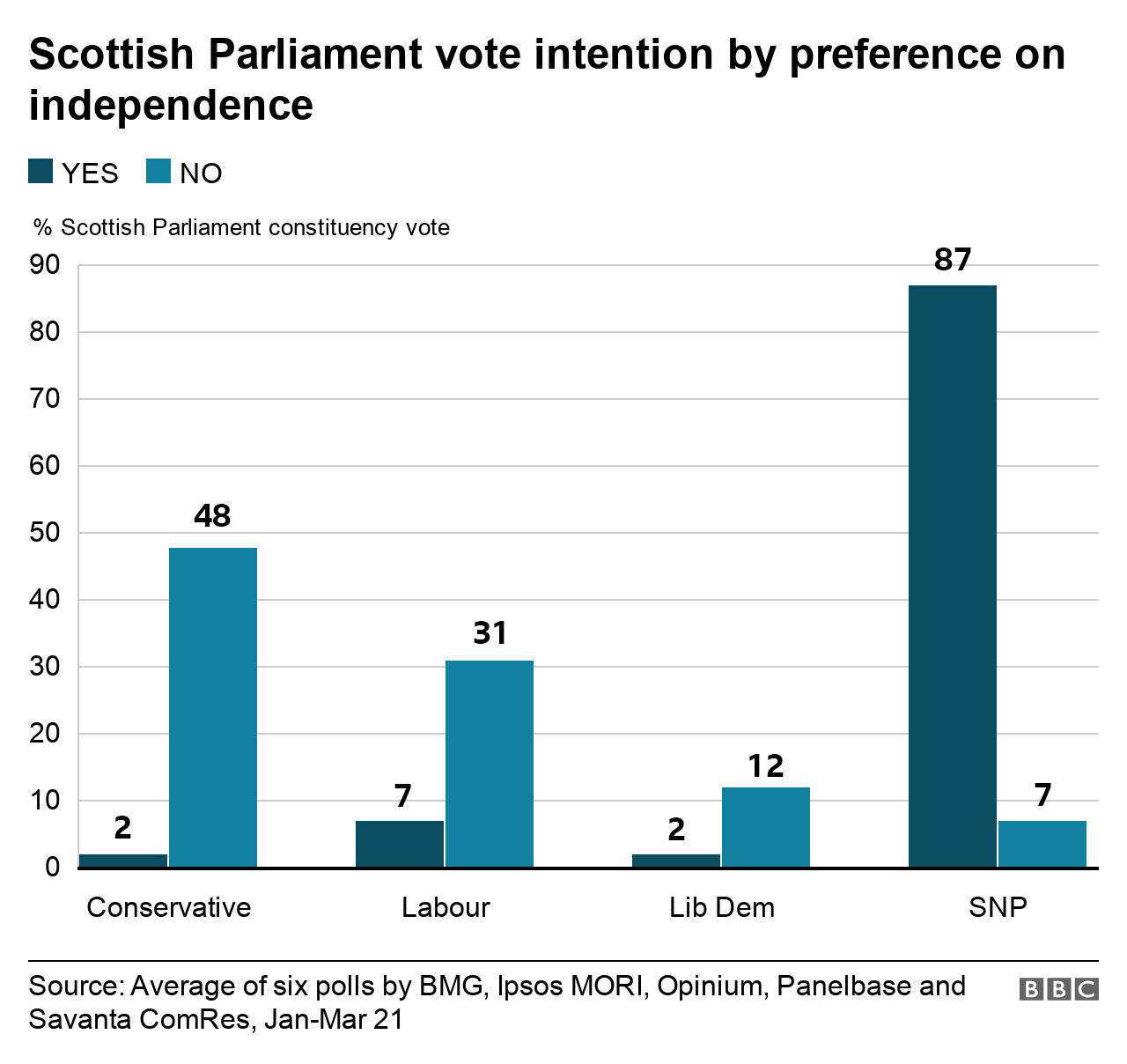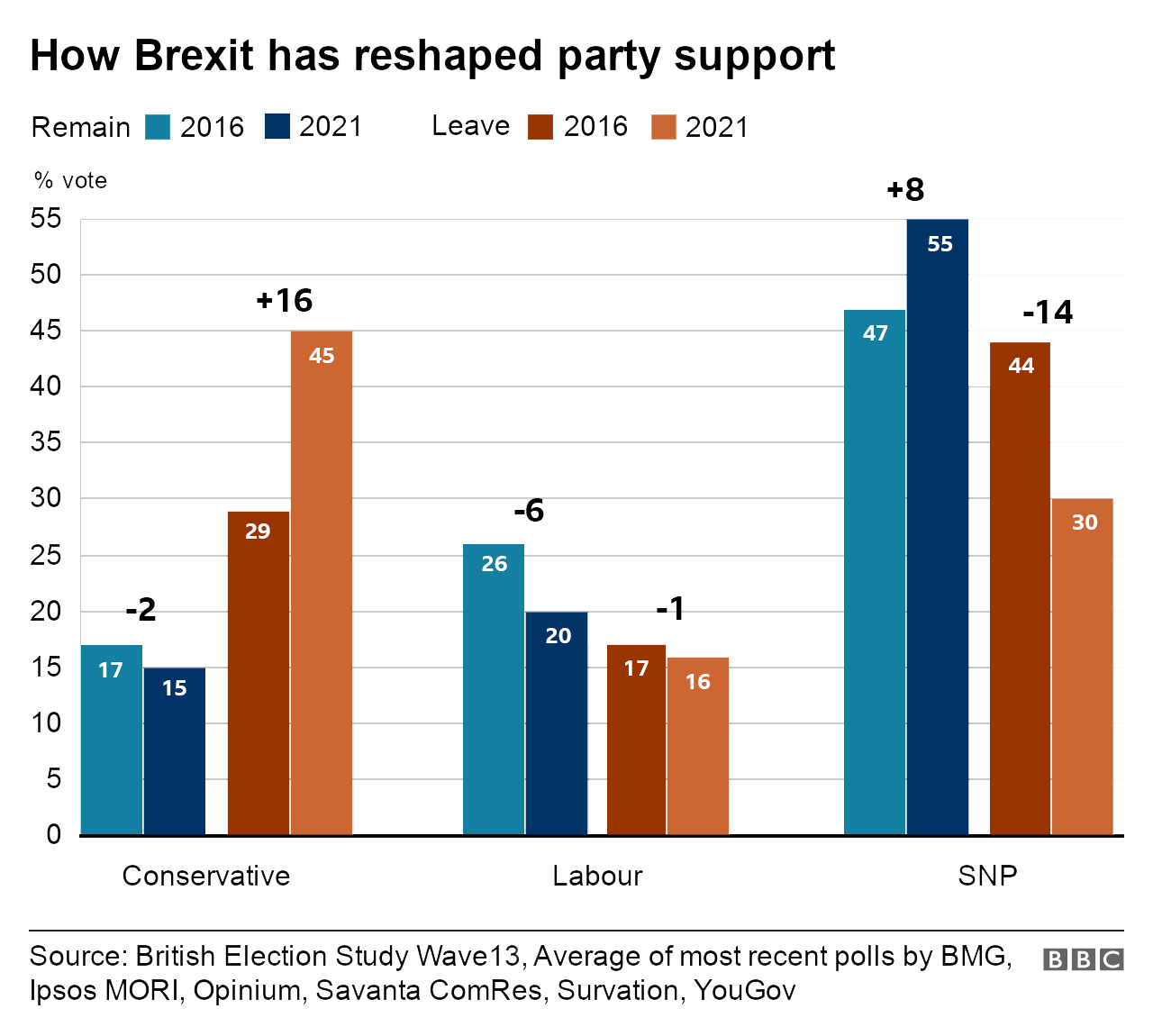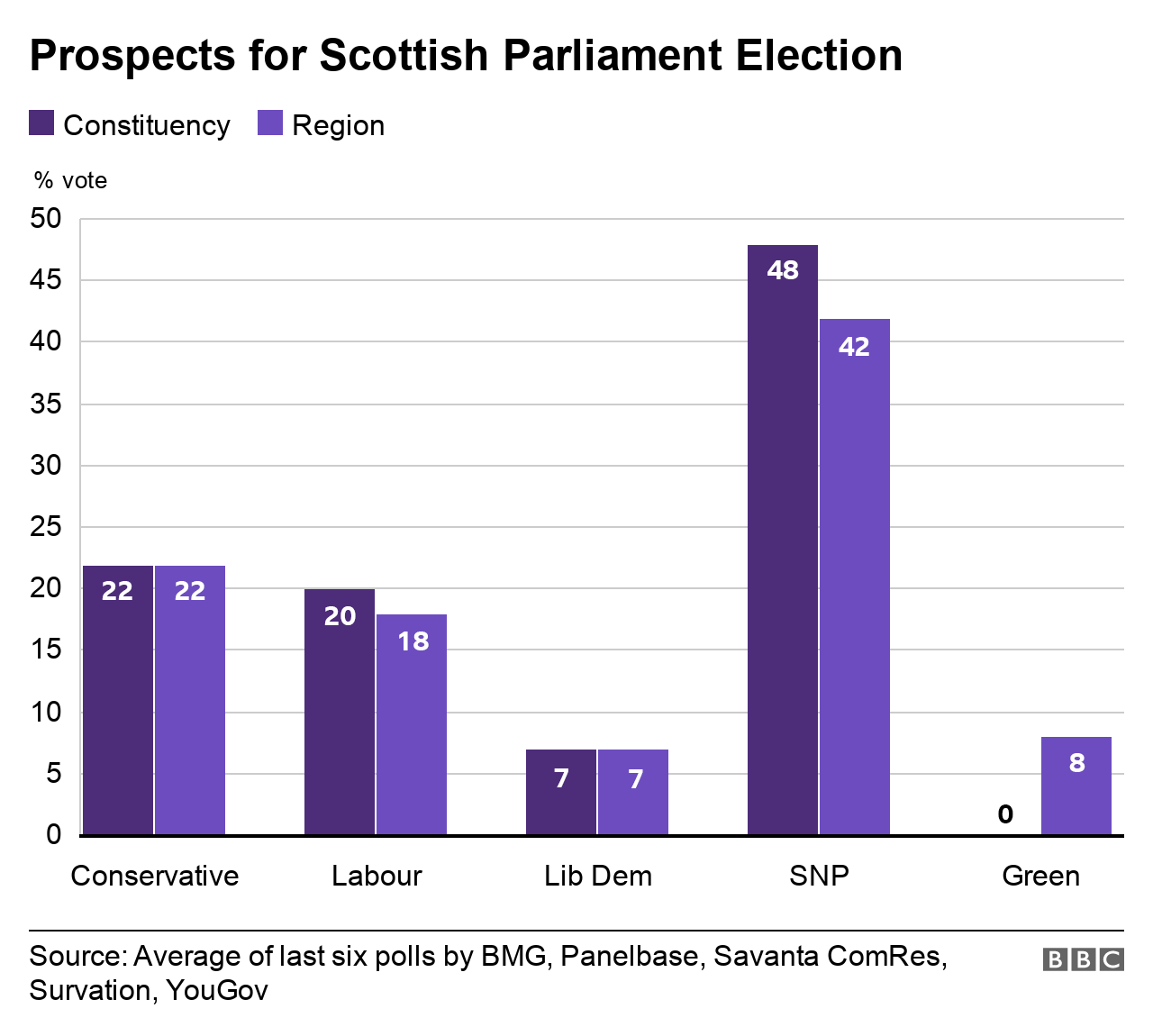Holyrood election 2021: The intense battle for every vote in Scotland
- Published

On the first official day of campaigning in the 2021 Scottish Parliament elections, polling expert Sir John Curtice considers the "intense" battle for every vote ahead of polling day on 6 May.

Voters go to the polls in six weeks to elect a new Scottish Parliament. The ballot looks set to be another crucial chapter in Scotland's continuing debate about how it should be governed.
According to the polls, voters are evenly divided on whether Scotland should be an independent country or whether it should remain part of the United Kingdom. On average recent polls put Yes to independence on 50%, No on 50%.
The issue seems set to influence the way in which many people will vote in an election in which voters will have two votes - one for their local constituency MSP, the other for a regional party list.
The SNP and the Greens will be arguing that there should be another referendum on independence. The Conservatives, Labour and the Liberal Democrats take the opposite view.

As our graph above shows, recent polls suggest that nearly nine in 10 of those who currently support independence are currently minded to support the SNP on the constituency vote.
Less than one in 10 of those who oppose independence indicate that they will vote for Nicola Sturgeon's party.
However, whereas most Yes supporters are nearly all backing the same party, the preferences of No voters are scattered across different parties.
Slightly less than half are supporting the Conservatives, just under a third Labour while one in eight are backing the Liberal Democrats.
True, the Greens have the support of 11% of Yes supporters on the list vote (and only just 3% of No voters), but this still leaves the SNP a long way ahead among those who back independence.
Not least of the reasons why support for independence, at 50%, is higher than the 45% recorded in the 2014 referendum, is that there has been swing in favour of leaving the UK among those who oppose Brexit.

On average the polls suggest that while just 34% of those who voted Leave in 2016 are in favour of independence, well over half (56%) of those who supported Remain now back the idea.
This has also opened up a division in party support that was largely not in evidence at the last Scottish Parliament election - which took place seven weeks before the EU referendum.
As our Brexit graph above shows, in 2016 SNP support differed little between those who went on to vote Remain and those who backed Leave. Now support for the party is 25 points higher among Remain supporters as it Leave voters.
In contrast, support for the Conservatives is now three times higher among Leave voters (45%) than among Remain supporters (15%).

The increased support for independence together with opposition to Brexit has enabled the SNP to establish a substantial lead in the polls, as the graph above shows.
On average the party is 26 points ahead of the Conservatives on the constituency vote and 20 points ahead on the list vote. Labour are trailing a little further behind in third place.
Unionist target
As the opposition parties have acknowledged, it will take a dramatic change of fortunes between now and the beginning of May for anyone other than the SNP to come first.
However, the target the unionist parties appear to have set themselves is to try to deny the SNP an overall majority - something which is very difficult to achieve under Scotland's proportional representation system.
It was the SNP's success in winning an overall majority in 2011 that paved the way for the independence referendum in 2014.
If the SNP were to repeat that feat it would be more difficult for the prime minister simply to say 'No' to another referendum.
From the figures in our chart, the SNP might just miss out on an overall majority - or might just make it. With the outcome of the election seemingly on such a crucial knife edge, it looks as though there will be an intense battle for every vote between now and polling day in May.
John Curtice is Professor of Politics and Senior Research Fellow, ScotCen Social Research and 'The UK in a Changing Europe'